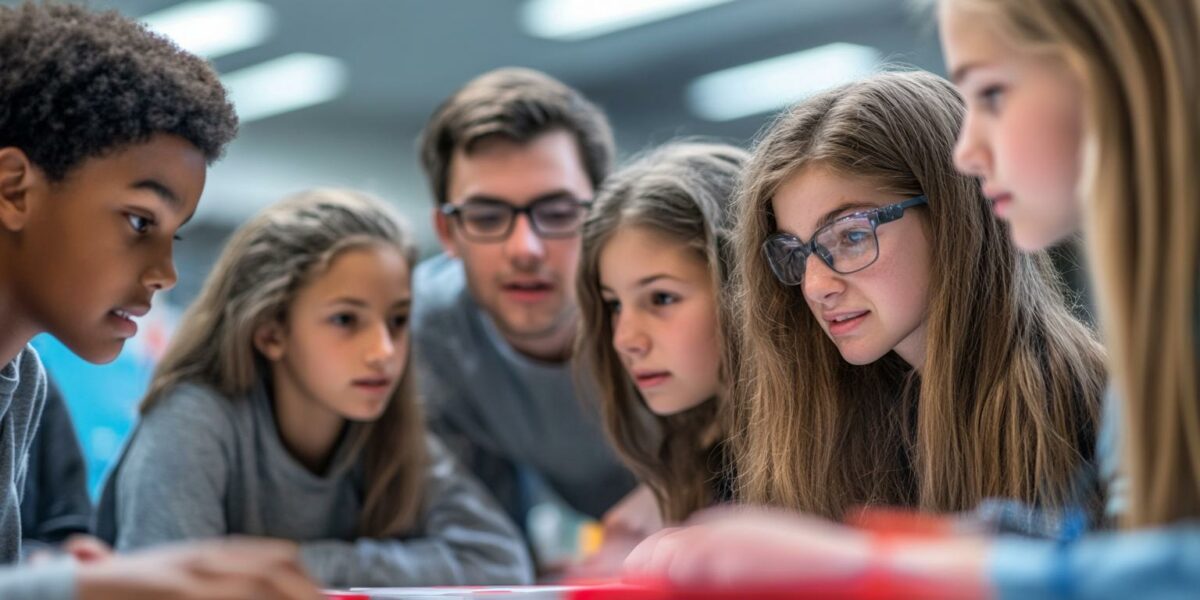Challenges in Climate Change Education
On August 13, 2024, NCSE Deputy Director highlighted the ongoing struggles in educating students about climate change. He discussed the recent censorship issues in Florida’s science textbooks, which has sparked significant debate. Despite these challenges, there are signs of hope and resilience within the education system.
A compelling study titled “Climate change education in U.S. middle schools: Changes over five pivotal years” was brought to light. This publication from NCSE’s Investigating Science Education program has documented promising improvements in middle school climate education. These findings are crucial for understanding the progress and setbacks in this area.
Branch expressed optimism by sharing that a significant portion of the public supports climate change education. According to polls, about three in four people are in favor of teaching about the causes, consequences, and potential solutions to global warming. This support is evident even in states like Florida, where censorship has been an issue.
Despite the hurdles, the commitment to sound science and comprehensive climate education remains strong. Organizations like NCSE are working tirelessly to ensure that students receive accurate and thorough information about climate change, equipping them with the knowledge they need to face future challenges.
Significant Developments in Climate Education
Branch’s discussion also highlighted several key developments in the realm of climate education. One notable change is the growing acceptance and integration of climate science in middle school curricula across the country. This shift marks a significant step forward in the battle against climate misinformation.
Another important aspect is the increasing involvement of educators in promoting climate literacy. Teachers are becoming more proactive in seeking out resources and training to better educate their students on this critical issue. Their dedication is making a noticeable impact on the quality of climate education.
Three major improvements have been identified:
- Enhanced teacher training programs focused on climate science
- Updated and accurate educational materials
- Greater support from educational organizations and the public
These developments are contributing to a more informed and prepared younger generation. By providing students with a solid foundation in climate science, educators are helping to ensure that future leaders are well-equipped to tackle environmental challenges head-on.
Public Support for Climate Education
The discussion emphasized the importance of public support in advancing climate education. The encouraging poll results indicate that a large majority of the public values climate education and understands its significance. This widespread support is crucial for driving policy changes and educational reforms.
Branch pointed out that even in states where climate change education faces obstacles, there is still a strong desire among the public to address this issue. This indicates a broader recognition of the importance of equipping students with the knowledge to understand and combat climate change.
Efforts to improve climate education are not limited to the classroom. Community initiatives and partnerships with environmental organizations are playing an essential role in spreading awareness and fostering a culture of environmental stewardship. These collaborative efforts are vital for creating lasting change.
Overall, the growing public support for climate education is a testament to the increasing awareness and concern about the impacts of climate change. This support is a driving force behind the ongoing efforts to improve and expand climate education across the nation.
The Role of NCSE in Enhancing Climate Education
The National Center for Science Education (NCSE) has been at the forefront of advocating for comprehensive climate education. Through their various programs and initiatives, they are working to ensure that students receive accurate and up-to-date information about climate science.
NCSE’s Investigating Science Education program has been instrumental in documenting and promoting best practices in climate education. Their recent publication highlights the progress made over the past five years, providing valuable insights into the current state of climate education in middle schools.
Branch’s discussion on The Wonderful Truth underscores the importance of continued advocacy and support for climate education. By bringing attention to the successes and challenges in this field, NCSE is helping to drive positive change and inspire others to join the effort.
In conclusion, the work of organizations like NCSE is crucial for advancing climate education and ensuring that future generations are well-prepared to address environmental challenges. Through their dedication and efforts, significant strides are being made in improving climate literacy and fostering a more sustainable future.



Robert
Can anyone share more info on the enhanced teacher training programs mentioned? Sounds like a great initiative!
Ginger_Odyssey
👏👏 for the teachers who are going the extra mile to educate students about climate change! Your efforts are truly appreciated.
GingerPrism
Isn’t it ironic that the state with some of the most noticeable climate impacts is also facing textbook censorship? SMH
GabriellaEssence
Thank you, NCSE, for your dedication to climate education. Our kids deserve to know the truth about our planet’s future!
NalaElysium
Why is there still so much resistance to climate education in some areas? It seems so crucial for our future.
toby
Interesting read! But how do the schools manage to teach climate change effectively amid censorship? 🤔
owen
Wow, I didn’t expect Florida to make such progress in climate education! Has anyone seen similar improvements in other states?